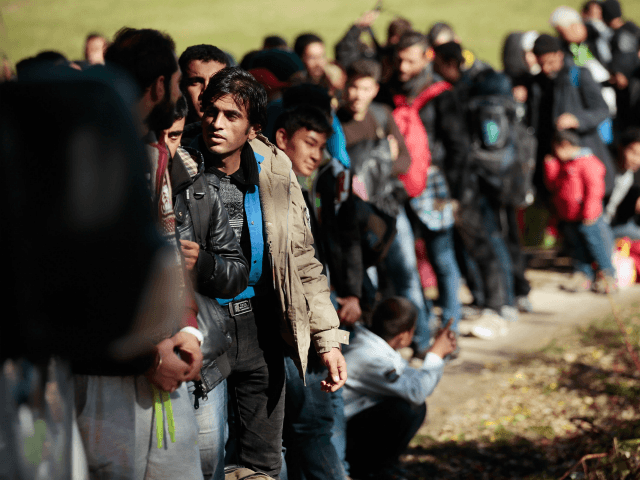Herbert Brecker, an expert on migration issues, has admitted that Germany is undergoing a rapid “demographic shift”, saying the country needs more migrants to offset the ageing labour force.
Brecker, who works at the Institute for Research on the Labour Market (IAB), said, “We are in the midst of a demographic change,” as the German labour force declined by 340,000 people due to many transitioning into retirement in 2019.
According to Brecker, only mass migration can solve Germany’s labour shortages. He went on to praise the integration of migrants who came to the country during the height of the migrant crisis in 2015, French newspaper L’Express reports.
Germany: Over One Quarter of the Population from ‘Migrant Backgrounds’ https://t.co/XnmBVUFEE8
— Breitbart London (@BreitbartLondon) July 29, 2020
Around half of the more than one million migrants who came to Germany during the migrant crisis is believed to hold some form of job, according to the newspaper. Migrants have found mainly work in restaurants, security, and in retirement homes.
A similar trend has been seen in Sweden, which also took in a large group of migrants relative to its population during the migrant crisis. But language differences have become an issue in some retirement homes, with a report in July claiming a resident briefly went without food as none of the staff working at the time spoke Swedish.
The Berlin Economic Institute (DIW) has also released a study on migrant labour market participation and noted some positives. But it also reported that low-skilled workers still have difficultly in the German labour market, along with migrant women.
The new reports run counter to prior reports such as a 2019 study by the German Federal Office for Migration and Refugees (BAMF) that suggested up to 65 per cent of asylum seekers were unemployed.
The study also noted that of those who did manage to find employment, at least 20 per cent worked “mini-jobs” rather than full-time work.
Other studies, such as a 2018 study by experts at the University of Basel, have claimed that mass migration may have some short-term economic benefits but will end up costing taxpayers in the West in the long-term.
Other European nations are taking a different approach to an ageing population. While Germany pursues a policy of replacing retiring elders with imported migrants, Hungary, for instance, has decided not to outsource the process of reproduction, instead encouraging its own families to have children.
The policy is already bearing fruit — as Breitbart London reported in August, Hungary’s birthrates were already up five per cent in 2020 so far, after the government launched a raft of new initiatives to support traditional families, including large loans for young newlyweds that are written off as soon as the couple have their third child.
Swiss Study Reveals Immigration Produces Long Term Economic Harm https://t.co/oXRXAiyjIL
— Breitbart London (@BreitbartLondon) September 3, 2018

COMMENTS
Please let us know if you're having issues with commenting.